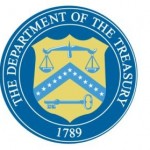Congress wants to reduce tax evasion, but politicians are unwilling to address the underlying problem of low tax rates, so they continuously give the IRS more power and make it more difficult for law-abiding people to engage in commerce. A good example is the FATCA legislation, which is directly harming honest expatriates and also Americans with foreign investment. I recently returned from a trip overseas where I heard how difficult it has become, thanks to U.S. regulations, to engage even in the simplest of financial tasks. Now, this Wall Street Journal blog post recounts a similar story:
It took Richard M. Shoemaker, a physics teacher at a community college in Montreal, to tell the Internal Revenue Service just how nutty tax returns are going to get for Americans who live or save overseas because of a new anti-tax haven law called Foreign Account Tax Compliance Act (FATCA).
…FATCA will compel many expats or Americans with offshore accounts or foreign real estate like a family villa in Tuscany to file duplicate reports — in some cases three different forms on the same items. And, it means some people will have to report on assets that went unreported before. There’s a $50,000 threshold involved.
This is bad, wrote Shoemaker. But, in the long run, he and his wife ”can live with this complex and duplicative reporting.” What really has him exorcised is that FATCA is going to make it very, very hard for expats to bank locally. “What we could not live with would be the total denial of banking services in Canada, resulting from the draconian reporting requirements imposed on foreign financial institutions,” he wrote.
The Center for Freedom and Prosperity’s Coalition for Tax Competition has made this a priority issue. American expatriates and investors are being unfairly caught in the cross-fire as U.S. politicians and regulators continue their relentless campaign against good tax policy and fiscal sovereignty.
For more on the Foreign Account Tax Compliance Act, see our issue page.

